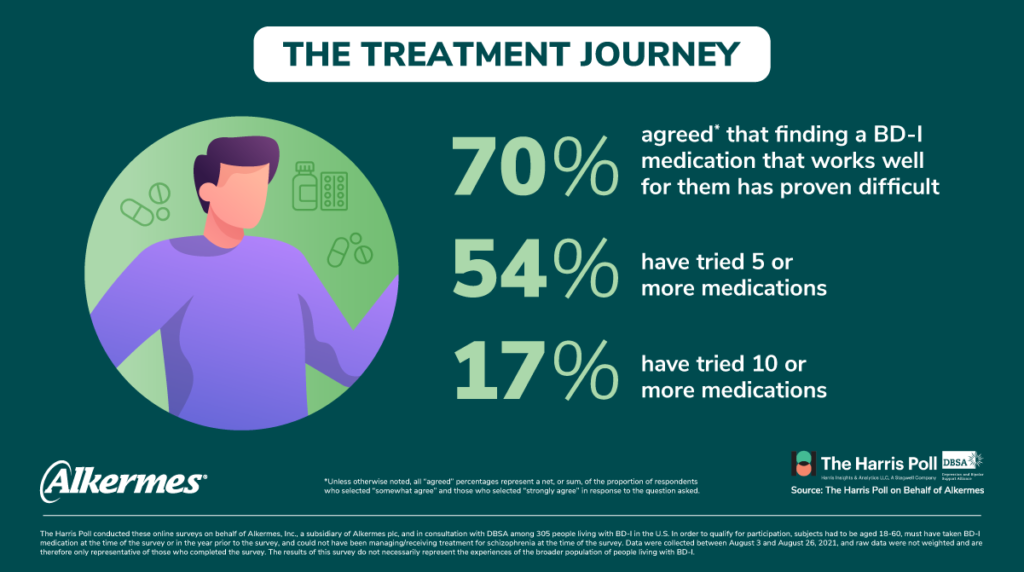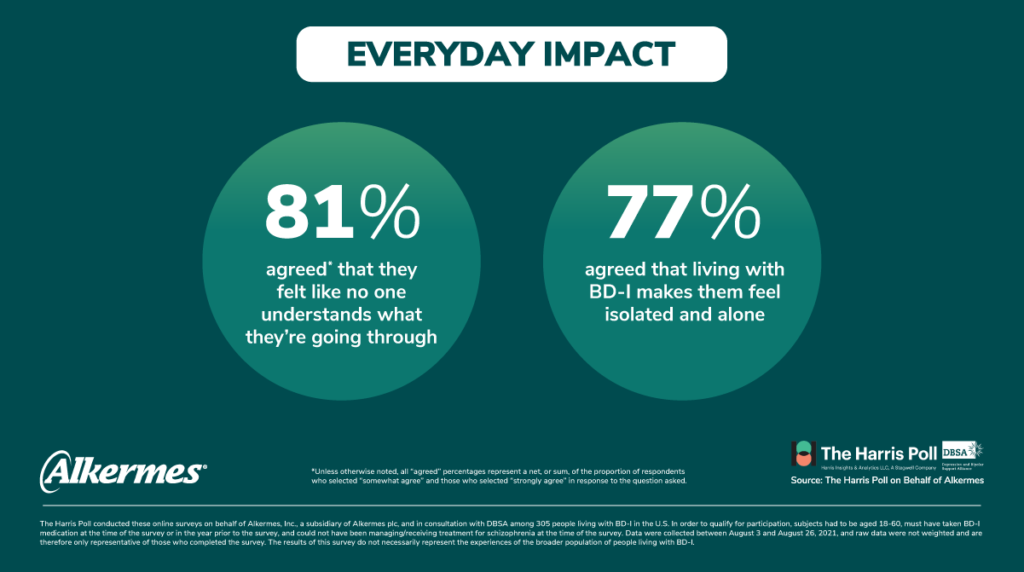Living with bipolar I disorder can be an isolating experience and leave people feeling misunderstood, according to a Harris Poll survey published this month.
The survey was conducted by The Harris Poll on behalf of Alkermes Inc., in collaboration with the Depression and Bipolar Support Alliance, and polled 305 adults about their experiences living with and receiving treatment for the disorder.
Of those who responded, 81 percent reported feeling like no one understands what they go through in living with bipolar I disorder.
Among respondents who have attended school or been employed, 77 percent said living with the disorder makes them feel alone or isolated; 51 percent said the disorder makes them less productive at school and/or work; and 47 percent acknowledged they have tried to hide their condition from classmates or colleagues.
“Living with and managing bipolar I disorder can be a profoundly challenging experience, but it is important to remember that people with this condition can lead stable, enjoyable, and fulfilling lives,” said Michael Pollock, CEO of the Depression and Bipolar Support Alliance. “The perspectives shared through this survey by people living with bipolar I disorder underscore the need for effective medications and the importance of considering the unique needs and experiences of individuals living with this condition—whether physical, mental, or social—as people work with their health care providers to evaluate treatment options.”
The survey also asked questions about treatment options; 70 percent of respondents said finding the right medication has been difficult and 80 percent said they wished treatment options came with fewer side effects.
“This survey provides valuable insights into the complexities of living with bipolar I disorder and the factors that people consider when making treatment decisions together with their healthcare providers,” said Sarah Akerman, M.D., Executive Director of Medical Affairs at Alkermes. “At Alkermes, we are dedicated to raising awareness of the unmet needs of people living with serious mental illness and advancing the development of new treatment options that may help address those needs.”



